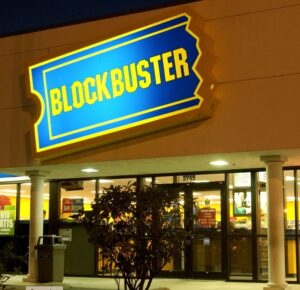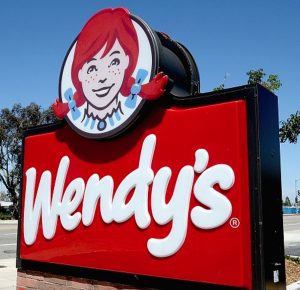Selling a Business That’s Losing Money: Pt 2
11 September 2023: Selling a Business That’s Losing Money: Pt 2
Last week’s post – part 1 of this 2-part series on selling a business that’s losing money – we started off by stating that there are two general types of buyers. In that post we focused on what a seller should do to get the business ready for the sale to one of those two cohorts – the financial buyer.
The seller must first understand what a business must do for its owner (current seller or future buyer) and its value for such buyers. But there’s that second cohort – the strategic buyer – with which sellers might find that their business has more value than to financial buyers.
Strategic buyers are not so much interested in the question, “How much will this business put in my pocket?”, as they are in the answer to a couple of different questions:
- “Will acquiring this company add more value to my existing business than it will cost to acquire that company?”
- “Will the acquisition give me a stronger competitive position in the market?”
- “Will this acquisition provide economies of scale thus reducing unit costs?”
__________________________________________________________________________________
On Thursday, 14 Sept., at 3 PM EDT, we are conducting a LIVE, hour-long workshop and Q&A on Buying PART of a Business, If you are a member of The Brokers Roundtable℠, the workshop is FREE.
If you’re not a member, you can join here. If you’d like to join as a non-member, you can do so at this link.
___________________________________________________________________________________
What Strategic Buyers Look For
Strategic buyers are generally looking for a way to grow quickly and in a way that reduces risk.
 For example, a 10-year old, $5 million contract landscaping company based in western Santa Barbara County, California, might find acquiring the assets – equipment, clients, employees, etc. – of a similar business in Orange County to be a very wise business move, even if the OC company is losing money. The acquiring company might believe that by combining the two businesses it could eliminate some costs (bookkeeping, administrative), combine other costs (marketing, field managers) thus both reducing their total expenses and increasing their buying power with suppliers.
For example, a 10-year old, $5 million contract landscaping company based in western Santa Barbara County, California, might find acquiring the assets – equipment, clients, employees, etc. – of a similar business in Orange County to be a very wise business move, even if the OC company is losing money. The acquiring company might believe that by combining the two businesses it could eliminate some costs (bookkeeping, administrative), combine other costs (marketing, field managers) thus both reducing their total expenses and increasing their buying power with suppliers.
We have seen a significant uptick in the buyer interest for such businesses over the past 18-24 months throughout North America.
Another example is a roll-up. A roll up is an action whereby an investment group “rolls up” smaller businesses in a specific industry.
One of the most famous and well known examples of a roll up is the one spearheaded by the late Wayne Huizenga. At 25, Huizenga started out with a small “mom and pop” trash-hauling business – one truck that he borrowed $5,000 from his father to purchase. Within five years, he had consolidated 100 other small, mom and pop companies into what eventually became the giant waste disposal company, Waste Management. That’s a roll-up.
 Interestingly, he had so much success (and fun!) he decided to do it again. Buying up mom and pops and small chains of video stores, Blockbuster Video was born.
Interestingly, he had so much success (and fun!) he decided to do it again. Buying up mom and pops and small chains of video stores, Blockbuster Video was born.
In July 2022, The Wall Street Journal published a story about several investment funds rolling up car washes. CAR WASHES!! But why not? That story clearly illustrates the economies of scale such a strategic plan can produce.
Examples of Strategic Buyers
Strategic buyers are anyone, any company, or any investment group that is looking for an acquisition opportunity that will “fit” with their plan for growth – their strategic plan. Rather than expanding organically and over time, these acquisitions present an opportunity to gain market share, operational efficiencies and speed.
An additional benefit is competitiveness. By buying a competitor, the acquiring business often enters a new geographic market and eliminates a competitor, gaining immediate market share and efficiencies of scale at one fell swoop rather than trying to expand into a market gradually – and having to go toe-to-toe with the competition in the hope of gaining enough market share to make the expansion worth the effort.
_____________________________________________________________________________________
Our course, “Learn How to Value and SUCCESSFULLY Sell Businesses“, teaches you how to accurately value and successfully sell businesses.
But there are other reasons for strategic acquisitions.
A business may need certain licenses or professional certifications to expand. Rather than try to acquire those licenses or certifications – the efforts for which will surely tip off the competitors – many businesses feel that an easier path is to acquire existing companies that have the licenses or certifications needed.
Franchising is a good example of this.
Franchising is a business model that confers certain rights to operate specific businesses. A franchisor creates a business concept. That concept might be food (McDonalds, Sweet Frog, Wingstop), hospitality (Choice Hotels, International Hotel Group), service (H&R Block, FastSigns) or any other industry. That franchisor then awards rights to operate the business concept to certain individuals or groups called franchisees.
This month’s Live Stream on The Brokers Roundtable℠, the online community for business brokers, business owners, Realtors, lenders, appraisers and others in the business-for-sale industry, will feature an interview and live Q&A with Dave Moore, of Acclivity Financial, a subsidiary of Citizens Bank and a Small Business Administration (SBA) “Preferred Lender”. Dave and I will be discussing the recent changes to the SBA program, what business buyers should know when preparing for acquisition financing and what business owners should do to prepare their business to qualify.
Created and hosted by Worldwide Business Brokers, The Brokers Roundtable℠ provides training, webinars, workshops, live interviews and Q&As, and connections with professionals in our industry from certified business appraisers, acquisition lenders, accountants, franchise specialists, transaction attorneys, commercial realtors and business brokers in nearly a dozen countries.
Click here for more information – and to join The Brokers Roundtable℠!![]()
Over the past decade or more, there has been consolidation in the franchise industry – on TWO LEVELS.
 First, more and more small franchisees are being acquired by larger franchisees. For example, one of our clients was a family that owned three Wendy’s restaurants which they sold to the owners of a chain of 24 Wendy’s restaurants. A perfect example of a strategic acquisition. The three acquired restaurants may not have been very profitable – if at all – but the acquiring company felt they could be handsomely profitable under the new company’s management.
First, more and more small franchisees are being acquired by larger franchisees. For example, one of our clients was a family that owned three Wendy’s restaurants which they sold to the owners of a chain of 24 Wendy’s restaurants. A perfect example of a strategic acquisition. The three acquired restaurants may not have been very profitable – if at all – but the acquiring company felt they could be handsomely profitable under the new company’s management.
In another instance, we were involved in a deal between two large franchisees – one with 125 service units on the Left Coast, the other with 69 units in the Mid-West. Though both chains were profitable, the combination brought enormous economies of scale, reducing costs and expanding profits.
Another example from our files was when we were approached by a buyer.
 Our client provided security at certain locations of a firm with hundreds of locations across the United States, most of which had no security. Our client and the national firm – our client’s client – wanted to expand their relationship by adding other locations to their agreement. The problem was that our client needed to be licensed in each additional state the expanded agreement would cover. Rather than incur the time and expense of applying for 15 different licenses in 15 different states, the client wanted to buy existing firms that held the necessary licenses.
Our client provided security at certain locations of a firm with hundreds of locations across the United States, most of which had no security. Our client and the national firm – our client’s client – wanted to expand their relationship by adding other locations to their agreement. The problem was that our client needed to be licensed in each additional state the expanded agreement would cover. Rather than incur the time and expense of applying for 15 different licenses in 15 different states, the client wanted to buy existing firms that held the necessary licenses.
None of these firms needed to be profitable; indeed, they didn’t even need to be operating. They just needed to have an active license. Our client was able to acquire some of these firms for a pittance – but the amount was “found money” to the sellers whose businesses were losing money.
__________________________________________________________________________________
We offer a comprehensive coaching program – both group coaching in our Brokers’ Roundtable℠ community as well as one-on-one coaching – tailored to Realtors, business owners, buyers and anyone interested in valuing, buying or selling a business.
If you’d like to learn more, email me at jo*@*******************og.com
___________________________________________________________________________________
A strategic buyer might be interested in acquiring the target company’s proprietary “knowledge”. This could be a patent, a trademark or technology.
And finally, as in a mirror image of the security company, the acquiring business might want the target company’s contracts.
For example, as you can imagine, a business that builds submarines sub-contracts almost all of the work to specialists in each of a submarine’s thousands of unique and specific aspects. A company that bid on but was not awarded the contract to supply composite gaskets to the general contractor just might make a run at the competitor that submitted the winning bid thus assuring years of future revenue.
The Bottom Line
Businesses that are losing money can be sold but much thought has to be given to the type of buyer that would be most appropriate, what they would be motivated by and how you might be able to convince them that your business – the one that’s losing money – would be a good acquisition.
I’d like to hear from you. What topics would you like me to cover? How can we tailor these posts to be more useful to you and your business. Let me know in the comments box, below, or email me at jo*@*******************og.com.
If you have any questions or comments on this topic – or any topic related to business – I’d like to hear from you. Put them in the comments box below. Start the conversation and I’ll get back to you with answers or my own comments. If I get enough on one topic, I’ll address them in a future post or podcast.
I’ll be back with you again next Monday. In the meantime, I hope you have a safe and profitable week.
Joe
Searching For…
NOTE TO READERS: Our “Searching For…” feature has been moved to our online community, The Brokers Roundtable℠. It will appear there exclusively from now on.

#business #businessacquisition #sellabusiness #becomeabusinessbroker #businessbrokering #businessvaluation #MergersandAcquisitions #buyabusiness #sellabusiness #realtor #realestateagents
The author is the founder, in 2001, of Worldwide Business Brokers and holds a certification from the International Business Brokers Association (IBBA) as a Certified Business Intermediary (CBI) of which there are fewer than 600 in the world. He can be reached at jo*@*******************og.com

